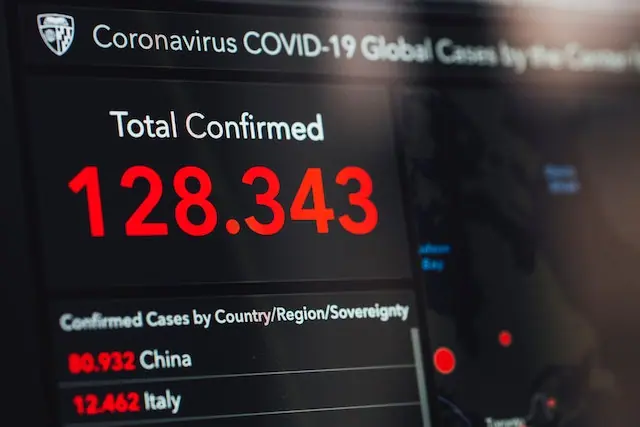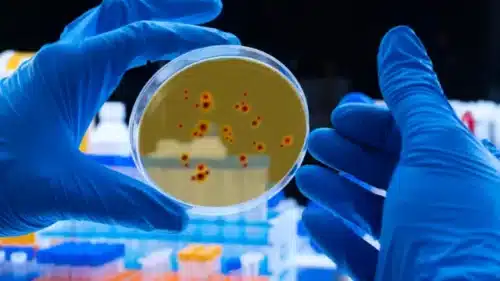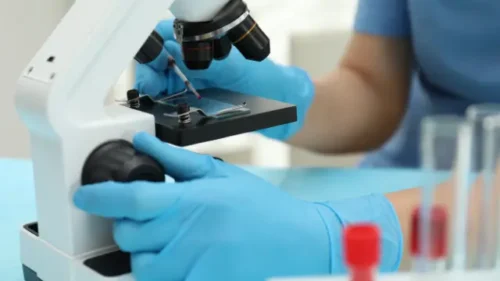
9 Career Pathways In Epidemiology
According to a report, the job outlook for epidemiologists is projected to grow 26% from 2021 to 2031, faster than the average for all occupations. This field attracts individuals passionate about public health and statistical analysis, capable of managing complex data to track, prevent, and control diseases. As you embark on this journey, a critical step would be to acquire the necessary skills and knowledge, and an ideal way to do this could be by pursuing a Master’s in Epidemiology. Let’s delve into nine career pathways in epidemiology.
Clinical Epidemiologist
As a clinical epidemiologist, you study data to understand disease patterns. You navigate medical databases and healthcare records to interpret the story they tell. You aim to bridge the gap between statistics and patient care as an essential link that binds the healthcare team.
This role demands honing analytical abilities, a firm grip on statistical tools, and an eye for detail. Continuing education thus becomes key. Building upon your foundational knowledge, expanding your understanding, and refining your skills can transform you into a seasoned professional.
In this age of digital advancements, educational resources have become more accessible than ever. They provide flexibility, allowing you to balance work and personal life while fostering professional growth. Pursuing a master of epidemiology online is an ideal option that checks these boxes. This program offers you the chance to delve deeper into the field, providing the advanced skills and knowledge necessary for the role of a clinical epidemiologist.
Infectious Disease Epidemiologist
From bacteria and viruses to parasites and fungi, these invisible foes are the focus of an infectious disease epidemiologist. Your expertise enables you to unravel the mechanisms of disease transmission, thereby shedding light on career pathways in epidemiology for effective interventions.
At the heart of this role is a rigorous process of investigation. It involves studying health data, running statistical analyses, and interpreting the results to comprehend the trajectory of infectious diseases. The insights you obtain are vital to shaping public health strategies and preventive measures.
The world has seen firsthand the profound impact infectious disease epidemiologists can make during the COVID-19 pandemic. They’ve been instrumental in shaping our understanding of the virus, informing policy decisions, and aiding in developing interventions, reminding us of their critical role in our society.
Field Epidemiologist
As a field epidemiologist, your work takes you to the frontlines of disease outbreaks, where you record valuable data from the source. Every location tells a different story; your task is to piece together the narrative from each data point you gather.
Your job carries immense responsibility. Your real-time information informs rapid public health responses, acting as the compass that directs interventions to mitigate disease spread. And yes, it’s demanding. Your work may call you to travel to remote areas and sometimes under challenging conditions.
But the impact you make is unparalleled. As a field epidemiologist, you are a guardian of public health, essential to preventing disease spread and preserving community well-being.
Pharmaceutical Epidemiologist
Working within the vibrant pharmaceutical industry, you apply your epidemiological skills to understand the real-world impact of medications. Your contribution to post-market surveillance provides pivotal insights for ensuring patient safety and drug effectiveness. In this role, you undertake the following tasks:
- Analyzing the use of new and existing drugs
- Studying potential effects and side-effects of medications
- Tracking drug safety and efficacy after their launch
- Guiding decisions related to medication usage and safety measures
Succeeding in this profession requires a firm foundation in statistical methods. Mastery of these methods helps you interpret complex data, revealing patterns and trends that inform safer and more effective drug usage.
Disaster Epidemiologist
The role of a disaster epidemiologist is both unique and vital. You’re the person communities turn to when natural disasters or public health emergencies strike. Your expertise lies in identifying the health impacts of these events and evaluating the immediate and long-term consequences on the affected populations.
In the aftermath of disasters, your job isn’t just to assess the damage. You’re instrumental in shaping strategies for effective disaster preparedness and response. By understanding the health risks and patterns associated with different types of disasters, you can help communities brace for future incidents.
Moreover, your work contributes significantly to resilience. Through your efforts, communities can rebound quicker post-disaster and strengthen their capacities to face future emergencies.
Occupational Epidemiologist
An occupational epidemiologist explores the health issues tied to work environments and evaluates the prevalence of work-related diseases or injuries. Every workplace has unique health risks and challenges, from office spaces to industrial sites.
You identify risks associated with specific jobs or industries. It’s about piecing together the puzzle of occupational health, determining which factors contribute to workers’ well-being and which detract from it.
The insights you uncover directly shape policies that protect workers’ health.
Social Epidemiologist
In the shoes of a social epidemiologist, your focus is on the intricate relationship between society and health. You delve into the social determinants of health, unveiling how societal factors cast shadows or shine lights on health outcomes. You study how:
- Socioeconomic status influences health risks
- Racial and ethnic disparities play out in disease prevalence
- Educational attainment correlates with health outcomes
Your role is about unmasking the health disparities hidden beneath the surface of society. The data you collect and the patterns you discern bring health inequalities into the spotlight, enabling targeted interventions.
Molecular Epidemiologist
With the power of molecular techniques at your fingertips, you can investigate how genetic factors affect health outcomes. Your microscope dives deeper than what meets the eye, figuring out the hidden narratives coded in our genes.
Your work sets the stage for big improvements in health care. You detect patterns and potential health risks linked to genetic factors, helping to predict susceptibility to certain diseases. It’s about studying genetic influences and figuring out how inheritance affects health.
Veterinary Epidemiologist
As a veterinary epidemiologist, you work in unison with animal populations, deciphering the causes and effects of diseases among them. Your work revolves around the following:
- Studying disease trends within animal populations
- Understanding the causes and consequences of these disorders
- Implementing measures to control zoonotic diseases
These zoonotic diseases, which can leap from animals to humans, represent a significant health risk. By studying and controlling them, you’re not just safeguarding animal health but also maintaining public health.
Read More: 7 Reasons Why is Personal Hygiene Important
Conclusion
The diverse career pathways in epidemiology allow professionals to impact global health significantly. Whether monitoring disease trends, studying social disparities, or preventing zoonotic diseases, epidemiologists work diligently to protect our communities. The need for highly trained epidemiologists is clear as the world continues to face public health challenges. Pursuing a career in this epidemiology field promises personal fulfillment and a chance to contribute to a healthier future for all.





